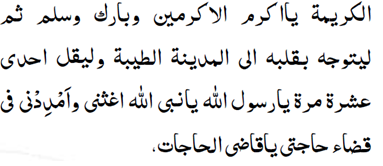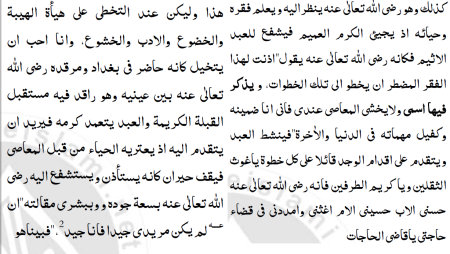Some of the explicit beliefs of Ahmad Rida Khan (1856-1921 CE), leader and guide to tens of millions of Barelwis worldwide, are:
- If it were in Allah’s power He would have made the Prophet ﷺ a God. (Malfuzat A‘la Hazrat)
- It is not disbelief to believe the Prophet ﷺ has knowledge exactly equal to Allah in terms of quantity. (al-Dawlat al-Makkiyyah [footnotes])
- For the fulfilment of needs, it is encouraged to pray a two rak‘ats prayer, then focus attention on Madina, and say: “Oh Messenger of Allah, help me, give me relief in fulfilling my need, Oh fulfiller of needs”, 11 times, and make the same request of Shaykh ‘Abd al-Qadir al-Jilani while taking 11 steps in the direction of where he is buried imagining oneself standing before his grave. (al-Fatawa al-Ridawiyyah)
- Saints can literally and physically be present in multiple locations at the same time. (Malfuzat A‘la Hazrat)
- The Prophet’s ﷺ power is a reflection of divine power and everything in creation is subordinate to his command. (al-Fatawa al-Ridawiyyah; I‘tiqad al-Ahbab)
- The Prophet’s ﷺ knowledge includes every leaf on every tree, every grain of sand, every thought that cross every heart, not an iota is excluded from his encompassing knowledge and vision of all physical things from the start of the universe until the final hour. (Inba’ al-Mustafa; al-Fatawa al-Ridawiyyah)
- The Prophet ﷺ possesses encompassing hearing, whereby there is no doubt that he hears and sees everyone sending salawat on him from anywhere in the world. (Inba’ al-Hayy; al-Fatawa al-Ridawiyyah)
- Physical words of revelation are eternal and uncreated. (Malfuzat A‘la Hazrat)
Follow the hyperlinks for documentation and images from the original works.
It is the delusional belief of Ahmad Rida Khan’s Barelwi followers that these extreme innovated ideas represent the carried understanding of the Ummah from its inception!
See also:
Blasphemous Barelwi Belief Negating The Prophet ﷺ Is Literally Human



 Posted by Abdullah
Posted by Abdullah 



